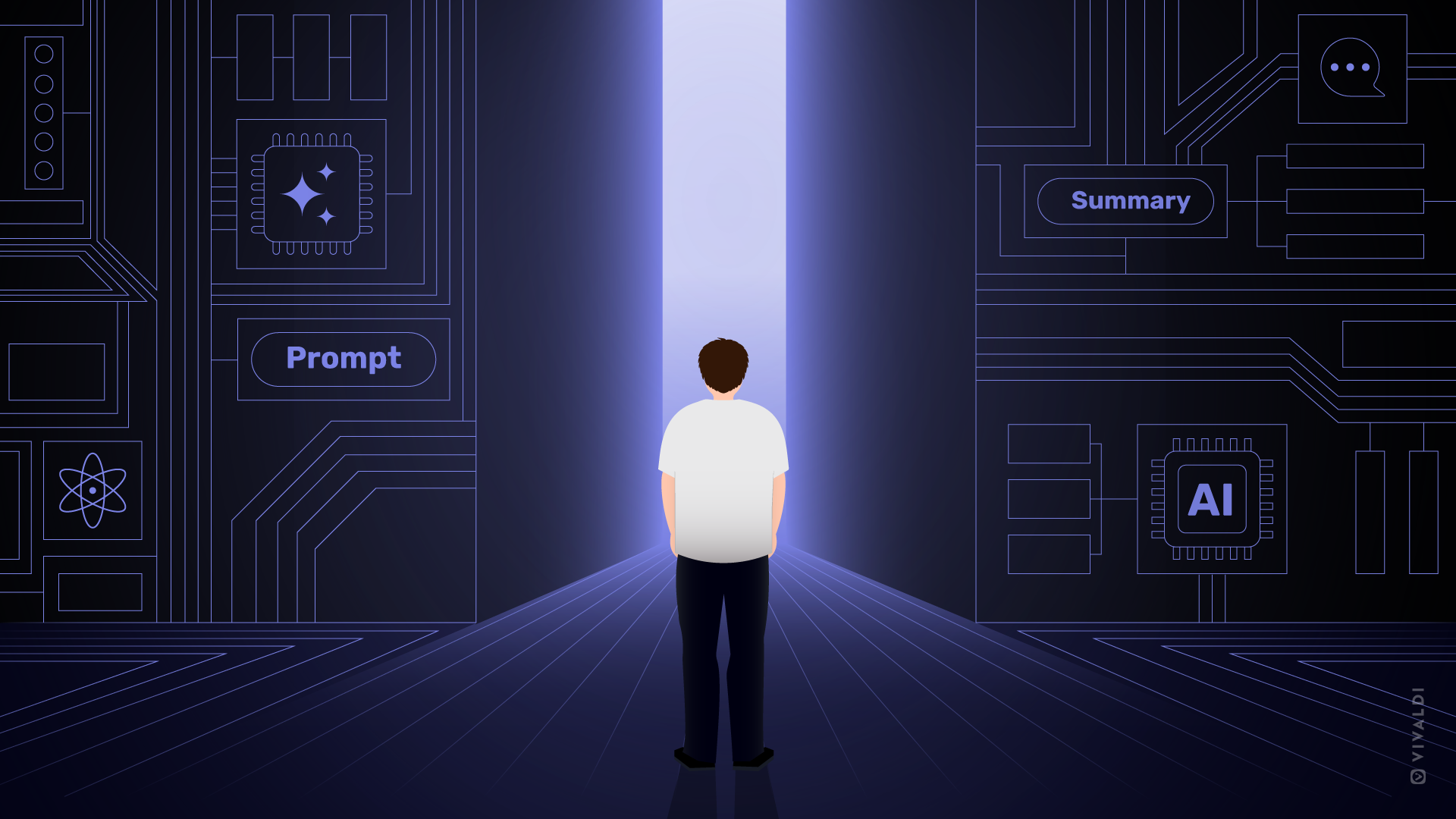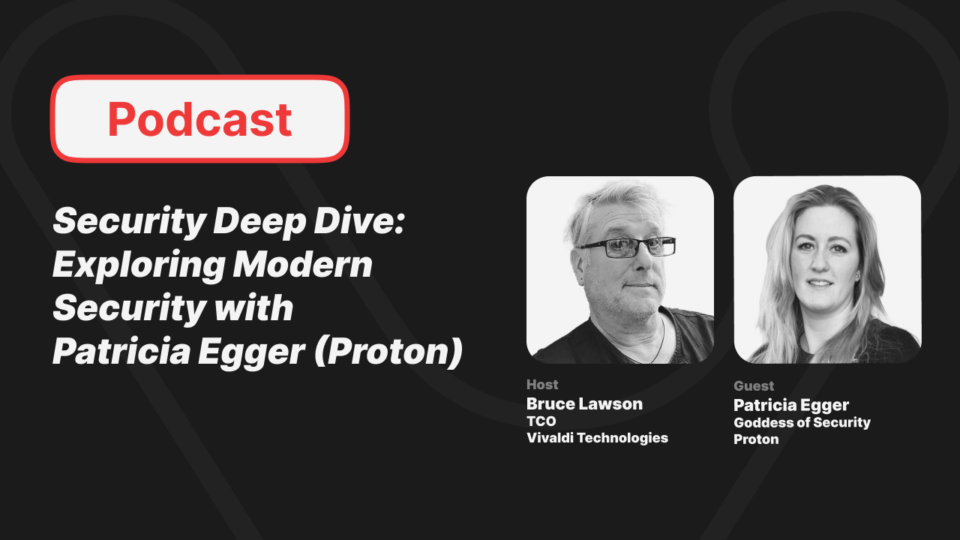
Read this article in español, 日本語.
Just like society, the web moves forward when people think, compare, and discover for themselves. Vivaldi believes the act of browsing is an active one. It is about seeking, questioning, and making up your own mind.
Across the industry, artificial assistants are being embedded directly into browsers, and pitched as a quicker path to answers. Google is bringing Gemini into Chrome to summarize pages and, in future, work across tabs and navigate sites on a user’s behalf. Microsoft is promoting Edge as an AI browser, including new modes that scan what is on screen and anticipate actions.
These moves are reshaping the address bar into an assistant prompt, turning the joy of exploring into inactive spectatorship.
This shift has major consequences for the web as we know it. Independent research shows users are less likely to click through to original sources when an AI summary is present, which means fewer visits for publishers, creators, and communities that keep the web vibrant. A recent study by PewResearch found users clicked traditional results roughly half as often when AI summaries appeared. Publishers warn of dramatic traffic losses when AI overviews sit above links.
The stakes are high. New AI-native browsers and agent platforms are arriving, while regulators debate remedies that could reshape how people reach information online. The next phase of the browser wars is not about tab speed, it is about who intermediates knowledge, who benefits from attention, who controls the pathway to information, and who gets to monetize you.
Today, as other browsers race to build AI that controls how you experience the web, we are making a clear promise:
We’re taking a stand, choosing humans over hype, and we will not turn the joy of exploring into inactive spectatorship. Without exploration, the web becomes far less interesting. Our curiosity loses oxygen and the diversity of the web dies.
Jon von Tetzchner, CEO, Vivaldi
The field of machine learning in general remains an exciting one and may lead to features that are actually useful.
But right now, there is enough misinformation going around to risk adding more to the pile. We will not use an LLM to add a chatbot, a summarization solution or a suggestion engine to fill up forms for you, until more rigorous ways to do those things are available.
Vivaldi is the haven for people who still want to explore. We will continue building a browser for curious minds, power users, researchers, and anyone who values autonomy. If AI contributes to that goal without stealing intellectual property, compromising privacy or the open web, we will use it. If it turns people into passive consumers, we will not.
We will stay true to our identity, giving users control and enabling people to use the browser in combination with whatever tools they want to use. Our focus is on building a powerful personal and private browser for you to explore the web on your own terms. We will not turn exploration into passive consumption.
We’re fighting for a better web.


